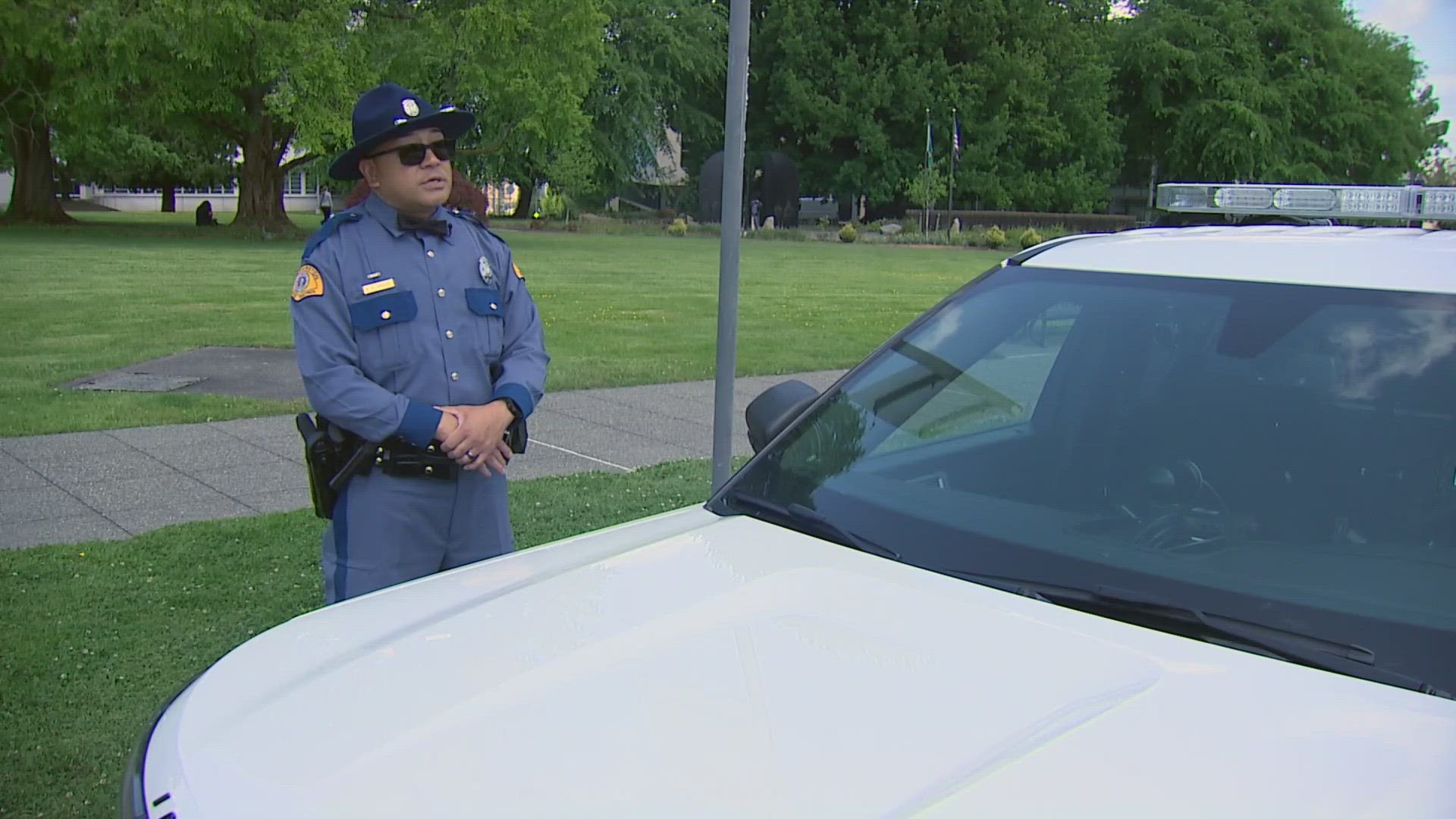OLYMPIA, Wash. — Forty-three Washington State Patrol (WSP) vehicles lined the roads at the state Capitol Wednesday. Each one was driven by a new Washington State trooper.
One of the graduates was Benedicto Singian, a father and military veteran. Singian moved to the US from the Philippines in 1991, and said his time in the service gave him the skills he needs to help people.
“I had a lot of soldiers underneath me in my tenure in the military, and they came up with all kinds of problems, all different kinds of issues, and stuff, and so I learned how to navigate those situations and be able to help them directly or find them the resources to get them the help that they needed,” he said.
Though 43 troopers signed on to the state patrol, the agency is still short 139 troopers, and overall vacancies number between 200 and 250.
WSP Director of Communications Chris Loftis said the statepPatrol is also looking at large retirement windows over the next few years because of large classes in the late 90s and early 2000s.
As the WSP looks to refill its ranks, the agency is also trying to have its troopers reflect Washington’s changing demographics, a point of criticism the WSP has struggled to address.
Singian’s presence in the state patrol could signal a shift in how the agency fills its ranks.
Currently, the agency’s staff is almost 83% white. But this incoming class is a little over 57% white, and is the second most diverse class in the agency’s history.
Loftis said the state patrol is now getting more proactive when it comes to increasing diversity.
“We’re seeing a significant amount of community engagement and going to the communities, rather than just inviting them to come to us,” he said. “We’re recruiting in different places. We’re going to historically Black colleges, we’re going to colleges that’re historically for women only. We’re going to where the people are.”
Singian said having that deeper understanding allows for a bond between the trooper and civilians, which makes the Washington State Patrol that much more effective.
“I can relate to you more directly because I know your background because I have the same background,” he said. “You’re suffering from the same issues, I’ve gone through those same issues. That’s how we’re able to relate more, because of our diversity.”

